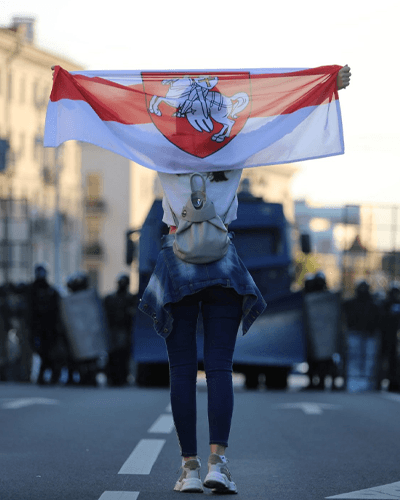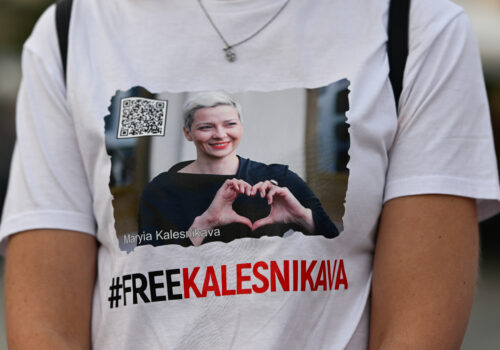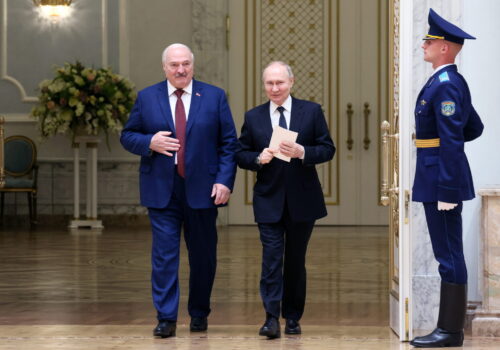For the past six months, Belarusians protesting for free and fair elections across the country have faced growing repression as strongman Alyaksandr Lukashenka attempts to cling to power. The opposition has demonstrated staying power and growing political capital, but the army and the security services remain loyal to Lukashenka. This domestic stalemate also presents a strategic problem for the Kremlin, which seems to have no new ideas beyond some monetary support for Lukashenka’s regime. Meanwhile the US and Europe have responded with modest financial sanctions against the discredited president and his cronies.
Do Lukashenka or Moscow have any new cards to play? Does the opposition? How will the situation in Belarus end and how will Washington, Brussels, and Moscow react?
Dr. Pavel Felgenhauer, columnist with Novaya Gazeta, David Kramer, senior fellow at Florida International University’s Vaclav Havel Program for Human Rights and Diplomacy, Valery Kavaleuski, foreign affairs adviser to Sviatlana Tsikhanouskaya, and Dr. Marie Mendras, professor at Sciences Po’s Paris School of International Affairs join to discuss the security situation in Belarus. Ambassador John Herbst, director of the Eurasia Center, moderates.
spotlight

Belarus
Belarus’ August 2020 presidential election saw widespread protests and serious fraud allegations as President Lukashenka claimed victory against popular opposition candidate Sviatlana Tsikhanouskaya. Will Belarus begin its transition to democracy, or will Belarusians face further repression as Lukashenka’s rule falters?
RELATED experts

The Eurasia Center’s mission is to promote policies that strengthen stability, democratic values, and prosperity in Eurasia, from Eastern Europe in the West to the Caucasus, Russia, and Central Asia in the East.




